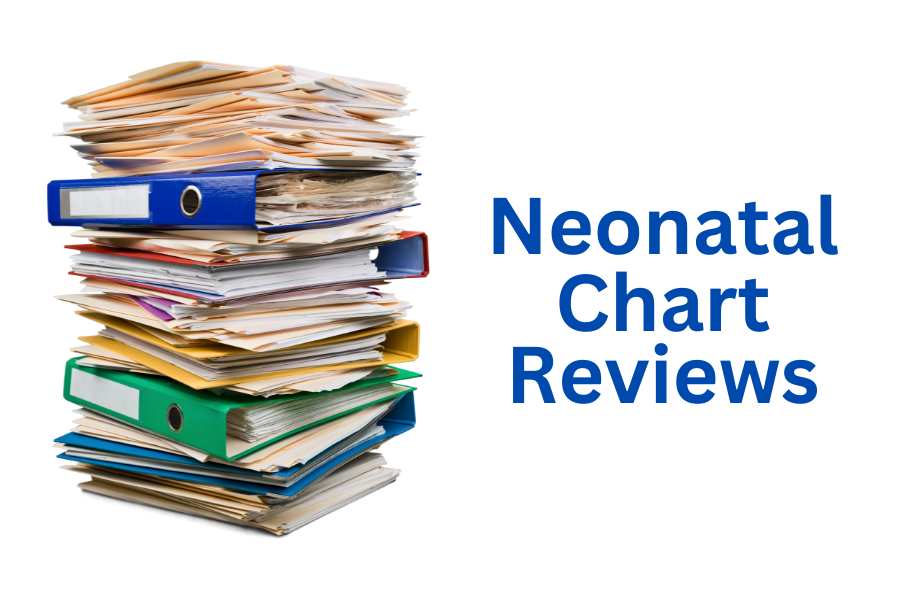As a neonatologist, I have reviewed close to 100 charts as an expert, furnishing my opinion regarding the quality of care provided to a newborn. If you would like to request my services to review a neonatal case, follow this link.
Many parties asked for my opinions: lawyers, peer review organizations, hospitals, pediatric departments, and hospital quality improvement or credentialing committees. Sometimes, I conducted reviews as a hired consultant and sometimes as part of my volunteer work for the hospital where I held my admitting privileges.
The paramount question in all these cases was: “Is the care provided to the patient within the so-called “standard of care”?
One must understand that “standard of care” is a legal term, not a medical one. Furthermore, many states will have definitions that differ (source article).
Generally, the standard of care is described as the degree of care a prudent and reasonable person with similar education and under similar circumstances would provide to their patients.
However, my work as a neonatal chart reviewer continues after answering this one question. Often, an interested party wants to know the answer to additional questions:
- Did the patient suffer any adverse outcomes due to the suboptimal care provided? If yes, will those effects be long-term, or patient will be able to recover fully?
- If the patient develops long-term handicaps, what will be the burden on their life and their family?
- Were any hospital systemic factors contributing to suboptimal outcomes in the patient?
- Is there a need to change any operational policies?
- Is there a need to improve training for nurses, physicians, or other medical providers?
The checklist I present to you below is very exhaustive. It is essential to remember that certain items will only be needed in some cases. Sometimes, I only conduct a quick cursory review for a lawyer or credentialling committee. Their question is simple and they want to know if the care provided by a physician was within the standard of care.
Suppose my answer is “No,” and they want to take this case to court (lawyer) or to a disciplinary committee (hospital). In that situation, they will ask for a more detailed analysis of the particular case.
Checklist for medico-legal reviewers of neonatal cases:
- Do I have all the needed documents? Many lawyers or hospital information management departments wrongly think reviewers need only a hospitalization summary. Often, after the initial request for copies of medical records, they provide only the summary note, discharge note, or, in the best case, only notes written by physicians. To review the case properly, I need all the documents created during the hospitalization. In the era of digitization, it is easy to produce. Comparing notes from a nurse, doctor, and respiratory therapist frequently leads me to discover the facts that would not have been clear if I had relied only on a physician’s documentation.
- Do I have copies of actual X-ray images done? As a physician working in the NICU, I often have to act quickly and can not wait for an official X-ray reading. That’s why neonatologist needs to be able to read basic X-rays done at the bedside for their patients. Reading chest and abdominal X-rays is part of neonatologists’ training.
- What is the designated level of care in the hospital where the patient received treatment? This knowledge will allow me to decide what should have been the criteria for transferring the patient to another institution. Knowing the designated level of care will help me determine what kind of medical specialists should have been available to treat the patient.
- Some medical problems in neonates are common but, at the same time, complicated. For that reason, many hospitals or NICUs developed policies to guide their providers’ diagnostic and therapeutic approaches. In my review, I want to determine if the hospital policy is current with national or other published guidelines and if the hospital medical providers followed their institutional policy correctly. Examples of situations when a hospital is likely to have a policy include the management of hypoglycemia (low blood sugar levels) or hyperbilirubinemia (yellow skin) in a newborn.
- Did a newborn receive care from adequately educated, trained, and credentialled providers?
- Is there any indication of shortages in the workforce?
- Were any doctors, nurses, or respiratory therapists hired as moonlighters or agency workers?
- Were any medical providers working at this hospital for less than three months or 15 shifts? (issues with adequate training, knowing the location of the equipment, or familiarity with electronic medical records)
- Is there any indication that physicians or nurses were overworked and working too many hours? (Schedules from the NICU may need to be requested)
- Is there any indication that an equipment or medication shortage was leading to a delay or inadequate care provided to the patient?
- If the care provided to the patient did not meet the care standard, how was it different? Did managing physicians explain the justification for deviation from the standard of care, guidelines, or policies?
- If physicians deviated from the recommended approach, how did it influence the patient’s condition and future prognosis?
- When the patients suffer from long-term sequelae, what is the burden on their quality of life and the financial burden on their families?
- Are there any indications of providers trying to change medical record entries after the fact?
- Are there any inconsistencies or contradictions among reports written by different providers?
- Was the family present in the NICU or delivery room when the most crucial events occurred? What was their recollection of the facts? Suppose the request for the neonatal chart review comes from a lawyer. In that case, having a short conversation with a family member or receiving a written note describing their concerns regarding the care received by their baby in the NICU is helpful.
- Were all electronic medical systems (documentation, ordering, diagnostics, images) fully operational?
- Is documentation provided for the review written professionally following industry standards (for physicians’ and nurses’ notes)?
- Was the hospital under a hacker’s attack?
- Did a primary physician transfer the patient to another hospital? If Yes, do we also have the medical records from that hospital?
As you can see, a lot of information is needed to write a full review of the neonatal medical case (you can read my written example of an expanded neonatal chart review). In the medico-legal sphere, one missing piece of information may decide the success or failure of that particular case in the court system.
Recommended Articles:
Neonatologist talks about most common causes of malpractice suits in neonatology.
When hospital can be found liable in litigation involving newborns treated in the NICU?

